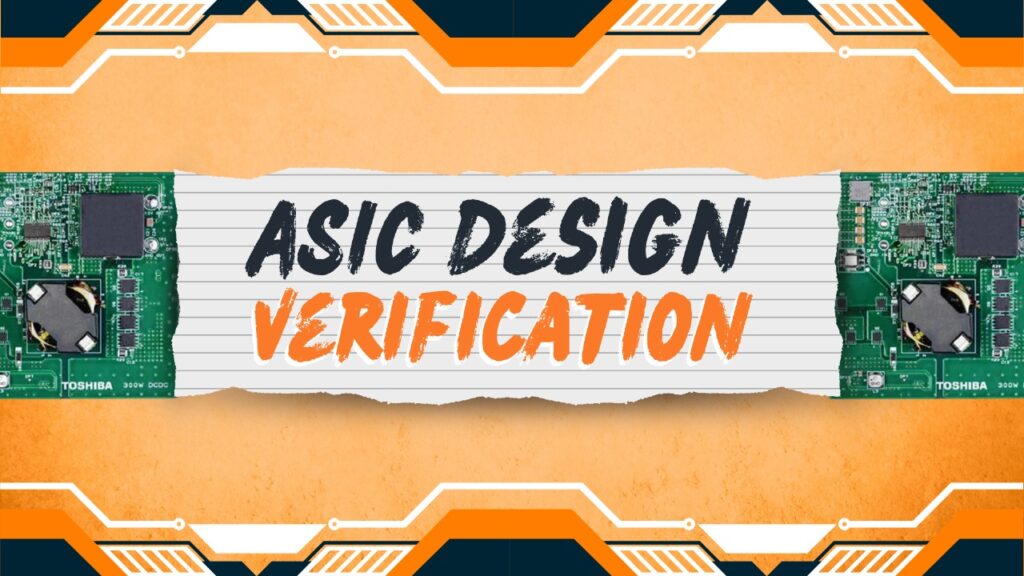ECE/EEE students of the following years
Other candidates: - Please connect with us to check eligibility.
ASIC Design Verification – Course Overview
At VLSI Expert, our ASIC Design Verification program is designed to equip engineers with deep industry-relevant skills in verifying complex SoC designs. Our curriculum is crafted by seasoned professionals and mapped directly to real-world verification challenges and company hiring expectations. This makes our trainees interview-ready, project-capable, and aligned with what top semiconductor companies seek.
From digital fundamentals to hands-on verification projects with industry-standard protocols, this course bridges the gap between academic knowledge and professional competence.
What Makes This Program Unique?
✅ Industry-Curated Curriculum
✅ Hands-On Projects Using Real SoC Protocols
✅ Latest Standards: SystemVerilog + UVM Methodology
✅ Focus on Practical Skills: RTL Coding, Functional Verification, Debugging, Coverage
✅ Mock Interviews, Resume Prep & Job Mapping Support
📘 Course Modules Breakdown
🔹 Module 1: Digital Basics
A strong foundation in combinational and sequential circuits, FSMs, counters, and sequence detectors prepares students for RTL design and logic debugging in later stages.
🔹 Module 2: Advanced Digital
Covers implementation of digital logic using MUX-based design, decoder/multiplexer preferences, PAL/PLA, clock gating, and logic optimization—everything needed to understand design trade-offs in ASIC flows.
🔹 Module 3: Linux (Basics to Advanced)
Master Linux essentials, scripting, process automation, and utilities like SED, AWK, and Makefiles—essential for automation in modern ASIC environments.
🔹 Module 4: C/C++ Programming
From variables and operators to file handling and OOPs, this module ensures confidence in writing verification tools and scripts, debugging simulations, and developing testbenches.
🔹 Module 5: Verilog HDL
Covers both RTL and gate-level modeling. Focus on IP/Protocol coding, hierarchical design, synthesis-readiness, and all constructs from data flow to behavioral modeling.
🔹 Module 6: SystemVerilog (Basic to Advanced)
Learn modern verification techniques like constrained randomization, functional coverage, and assertions. Includes IPC methods like semaphore/mailbox and OOP-based testbench architecture.
🔹 Module 7: UVM (Universal Verification Methodology)
Complete understanding of UVM components—agent, driver, monitor, sequencer, environment—and how to build scalable, reusable, layered testbenches for protocol-based and custom designs.
🔹 Module 8: Real-Time Projects
💡 On-Chip Protocol Verification Projects:
•I2C
• AMBA-APB, AHB, AXI
💡 Other RTL + Verification Projects:
•FIFO (Synchronous & Asynchronous)
•Dual Port RAM
•Traffic Light Controller
•RISC Processor
🎯 Career Preparation
Along with technical training, we prepare students for successful placement through:
• Placement Readiness Tests & Mock Interviews
•Customized Job Mapping aligned with your strengths and preferences
•One-on-One Career Guidance so you choose not just a job, but your ideal career path
•Continuous Support even after placement
💬 “We don’t just place you. We empower you to choose your career.”
🚨 Note:
Tests or interviews can be conducted at any point during the training to assess your readiness and connect you with hiring partners.
Module 1: Digital Basics (Revision of Engineering course work)
Module 2: Advance Digital (Implementation of Digital circuit in VLSI design)
Module 3: Linux (Basics and Advance)
Section 1: Fundamental
Section 2: Advance
Module 4: C/C++ Programming
Module 5: Verilog HDL
Section 1: Fundamental
Section 2: Advance
Module 6: System Verilog
Section 1: Fundamental
Section 2: Advance
Module 7: UVM (Universal Verification Methodology)
Section 1: Fundamental
Section 2: Advance
Module 8: Projects
Section 1: Modern SoC On-Chip Protocols
Section 2: Other Projects
NOTE: TEST AND INTERVIEW CAN BE TAKEN AT ANY MOMENT
Trainer Details:
Q- Who is giving this training?
ANS: This training is being conducted by VLSI EXPERT faculties or Industry Experts.
Q:- What is going to me mode of delivery of this training ?
ANS: This is an Instructor Led online Training.
Q: - What if I miss a session?
ANS: No issues if you miss a session and it was conducted online - the same will be available on our online platform and you can go through is as many time as possible though the instructor won’t be available to solve your queries.
Q: - Is it Certification Course?
ANS: - Yes this is a certification Course.
Q: - Who will give the training Certificate?
ANS: - The training Certificate will be given by VLSI EXPERT.
Q: - Is it a Refundable Course?
ANS: - No.
